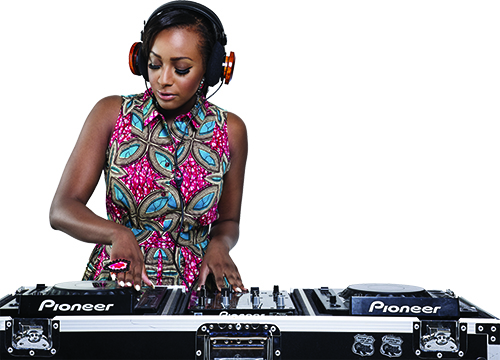In a continent where music is the lifeblood of so many cultures, a generation of musicians and creatives from Lagos to Cape Town are at risk of falling by the wayside as more and more of them are robbed of their income by the greatest scourge to their industries – piracy.
According to a recent report from the International Federation of the Phonographic Industry (IFPI), legitimate content accounts for less than 10% of the music market in many African nations. Estimates put the proportion of Kenyan pirated music at 80% nationally. Growing up in Lagos, I have memories of sitting in traffic where CDs yet to hit the shops in Europe, let alone Nigeria, were offered through my car window.
Taking Lagos’ infamous Alaba Market as a microcosm of the broader situation, piracy dominates the distribution network, flooding the market with knock-off Nollywood films and bootlegged beats. For the original creators, while they may enjoy popularity, the financial rewards for their efforts range from minimal to non-existent.
This situation is replicated across the continent. In Malawi, artistes like Thocco Katimb end up distributing and selling their own music because intellectual property rights are not robust enough, and the middle men can’t be trusted to not leak CDs to be replicated. The situation in Malawi is complicated further by the government’s stance against musicians selling their music without the hologram copyright sticker as stipulated by the 1989 copyright act.
As a result, life for many creatives across Africa is unstable. Fellow musicians tend to work primarily for the love of their craft; the joy of their art is almost reward enough. But without suitable financial recompense, many talented Africans are being denied the chance to pursue their aspirations.
Loading...
If the industry climate further dissuades young African talent from producing high-quality art, we as a continent risk losing an entire generation’s worth of cultural output. Who will be the next Fela Kuti? Where will the new 2face Idibia appear? How can Ghana see another Sarkodie, or Uganda another Chameleone, if the industry does not suitably reward those artistes whose music is in demand?
All is not lost, however, and there are areas that must be explored to combat content piracy.
Effective intellectual property protection is the most important step that national governments can take in countries like Nigeria, Malawi, and other flourishing cultural hotspots. In just the same way as encouraging business growth or attracting foreign investment, legal frameworks are central to ensuring that legitimate enterprise thrives.
A hologram on a CD is not enough; there must be suitable measures in place and the will to enforce them. Kenya destroyed over five million pirated items in 2013 and the Kenya Copyright Board has since begun actively monitoring illegal downloads. Other nations would do well to follow this example.
Beyond a crackdown, however, a progressive long-term solution may involve bringing content pirates into the legitimate system so as to better regulate their activity.
Returning to the example of Alaba Market, since 2008, the Nigerian government has been offering traders there the opportunity to sell pirated content legally in return for a registration fee. Legitimizing these circulation channels means artistes and record labels have begun signing distribution deals with established pirating outfits in an effort to recoup at least some earnings from their own intellectual property. While the legal environment catches up with reality, exploring ways to bring these traders into the fold may be a realistic way forward.
Technology also offers solutions, providing an alternate revenue stream for struggling artistes. Kenya’s Mdundo.com, a digital platform enabling music distribution without a recording label, has been touted as a potential saviour. For $1, customers can download five tracks via a code they receive on a scratch card.
Piracy in Africa is a significant threat not just to the creative industries but to society too, with much of the profit funding organized crime. From the greats of old like King Sunny Ade, Manu Dibango and Ali Farka Toure to the new kids on the block, African music has long had an important place on the global scene. The cold, rational argument for greater intellectual property protection is certainly needed, but a more emotional appeal to the will of all Africans to nurture and encourage our continent’s brightest talents is compelling. Both must be made with equal energy if we are to keep those lights burning.
Loading...
